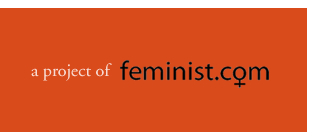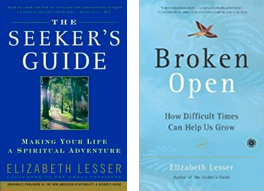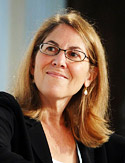 |
 |
The Spiritual Adventure What
Is Spirituality? < back to Inspiration & Practice
Caring about and working for the health and happiness of others in our families, communities and the world can take a toll on our own health and inner peace. Therefore, it’s a wise move to take care of our own health--spiritually, emotionally, and physically. This section will feature excerpts from two books that can help you do just that. Enjoy these selections from Elizabeth Lesser’s bestselling books: Broken Open: How Difficult Times Can Help Us Grow and The Seeker's Guide: Making Your Life a Spiritual Adventure (both from Random House). The following piece is adapted from Elizabeth Lesser’s book The Seeker's Guide: Making Your Life a Spiritual Adventure. “Science cannot solve the ultimate mystery of Nature. And it is because in the last analysis we ourselves are part of the mystery we are trying to solve.” -- Max Planck I have been following a path that I call spiritual for most of my life, yet I hesitate when people ask, “What do you mean by spiritual?” I would like to give a quick and easy answer; it seems that I should have one. I have certainly met enough people whom I call spiritual beings, and have had many experiences that lifted the veil between my usual consciousness and another, vaster reality. Yet, there is no one-liner that could adequately describe the mysterious nature of these beings or states of consciousness. Besides, the spiritual quest is different for each one of us, and it changes as we change. As the comedian George Carlin says, “Just when I found out the meaning of life, they changed it.” And yet it is critical to ask, “What is spirituality?” as we venture on the path. The word is so laden with contradictory meanings and confusing traditions that many forego the one journey in life that brings real happiness and fulfillment. For some, the word spiritual is connected to their mistrust of religion. For others, the word spiritual means anti-scientific. As such, it is either a refreshing departure from rational tyranny, or it conjures up the occult, UFOs, and bogus misinformation. Some hear the word spiritual and are encouraged by its whispered promises of grace; others are threatened by it, afraid of looking too deeply at their own behavior, the unlived parts of their lives, and ultimately, death. For most of us, the word spiritual probably activates all of the above associations. We are drawn to it and suspicious of it at the same time. The first step on the spiritual path is to find a satisfying definition of the word, one that is as free from our conditioning as possible, one that can keep us on track. This is not as hard as it seems. Deconstructing the word spiritual is a freeing and an enlightening task, and once we start searching for the word’s meaning, we find simple hints all along the way. A good thing to remember as we search for our own definition of spirituality is that no one has THE definition or THE answers to the most basic spiritual questions of how to live, love, and die. If such unequivocal answers existed they would be as universally accepted as how to make fire. I once sent a questionnaire to 200 spiritual leaders from a variety of faiths and backgrounds. The first question I posed was: What does the word "spiritual" mean to you? Reading through the responses to this seemingly simple question, posed to experts in the field, verified for me that no spiritual leader, no brilliant intellectual, no scientist—no one—has THE answer. After meeting some of the world's wisest hearts and brightest minds, I must report that all of us, from the unusually sage to the normally confused, can only add our own bits of wisdom to the poetry of mystical conjecture. So right at the get-go we can let ourselves off the hook, accept our confusion as par-for-the-course, and relax a little as we search. We can feel part of an ancient and ongoing community of seekers. As you search, keep in mind that religion and spirituality are not necessarily synonymous. Religions are like cookbooks and guide books: they are not the food or the foreign country; rather they suggest ingredients and point us in the right direction. “Do not be idolatrous or bound to any doctrine, theory, or ideology,” says Thich Nhat Hanh, a Vietnamese Zen monk. “All systems of thought are guiding means; they are not absolute truth.” Many people are so turned off by religions—their seemingly arbitrary moral codes, the boundless hypocrisies between word and deed, the arcane rituals—that they have acquired a resistance to spirituality itself. I sympathize with those intellectuals who equate spirituality with sanctimoniousness or sentimental nonsense, and who turn a disgusted back on the whole topic. Many who call themselves spiritual seekers are so irrational and hold so rigidly to their beliefs that if their way is the only way, count me out as well. But in truth, spirituality and intelligence are not in competition. They are one and the same if we affix a definition to spirituality that is inclusive and forgiving enough to hold the full human condition. As we search to define spirituality for ourselves, let’s put aside the misconception that spirituality excludes things like rational thought, intellectual rigor, literacy, learning, science, and other great advances of the human mind. You can walk a wonderful spiritual path with or without adhering to a religion. All paths are available; none are exclusively right or wrong or even required. While some lucky people approach the spiritual path with a light and sure step, most of us stumble upon it led by a vague sense of longing for something more, an anxiousness for meaning, a basic intuition informing our modern minds. A formidable resistance that arises when modern people approach the spiritual path is a cultural bias in favor of intellectualism, as well as a devaluing of other human modes of perception: emotions, intuition, sensation. An unnatural divide between intellectual development and the development of our other capacities has evolved in the 20th century to the point where many who consider themselves thinking people will have nothing to do with anything that smacks of mysticism. Intellectuals scorn spirituality, as if pondering about our very existence was not as valid as researching science or history. The modern reverence for the mind has obscured a profoundly natural yearning—one that is as basic as hunger and as near to us as our breath. Another misconceived notion about spirituality that alienates the modern seeker is the association of sacredness with saintliness. It is erroneous to separate spirituality from everyday life. To equate holiness only with celibacy, or solitude, or poverty is to deny most of us a spiritual life. Enlightenment can be nurtured in a monastery or in a family, alone or in relationship, in prayer or at work. The bliss of the world is no less spiritual than the bliss of transcendence. We can indeed “follow our bliss” as we follow the spiritual path, whether that bliss is raising our consciousness or raising children, reading a holy text or running a marathon. But be warned! There’s a fine line between bliss and narcissism. I remember the first time I came across Joseph Campbell’s now-famous line about “following your bliss.” I was in college, in the stodgy library at Columbia, using one of Campbell’s texts on mythology to research a paper. There, in a section called “Sacrifice and Bliss,” I received confirmation that my dream of dropping out of college and driving across country was the spiritually correct thing to do. Of course I neglected to read further, to where Campbell put bliss in the context of sacrifice. Many have made the same mistake, going for the goodies of spirituality without grounding the search in reality. While spirituality is about bliss, it also is about balance. Without some degree of sacrifice for the greater good, spiritual self-discovery eventually leads to plain old self-indulgence. When we witness people using wise teachings to justify unwise and selfish behavior, spirituality seems like a game people are playing to get what they want. Spirituality is not the abdication of responsibility; it’s not a magic carpet ride to la-la land; and it’s not sunny, easy answers to life’s complexity. Rather, spirituality is a long, slow process—a patient growing into wisdom. It is no wonder that this kind of spirituality seems foreign to many modern people. It is much more like cooking a fine meal of many courses—picking the fresh herbs from the garden, waiting for the yeasted rolls to rise, marinating the meat, rolling the pie crust—than like driving up to the fast food window and drumming your fingers for two minutes while a stranger wraps your burger. Inviting spirituality into your life is like packing for a long journey. As you search for your own definition, here are some of the most important things to pack: an openness to things you may have been conditioned to reject; a comfortableness with the unknown; and fearlessness.
For many years, Elizabeth spearheaded Omega’s popular Women and Power conferences, renowned gatherings featuring women leaders, authors, activists, and artists from around the world. In 2008 she worked closely with Oprah Winfrey and Eckhart Tolle in the creation of a ten-week online seminar based on Tolle’s book, A New Earth. The “webinar” was viewed by millions of people worldwide. Since then, she has appeared several times on The Oprah Show and Oprah.com webcasts, and is an ongoing host on Oprah Radio, a weekly show on Sirius/XM. A student of the Sufi master, Pir Vilayat Inayat Khan since 1971, Elizabeth has also studied with spiritual teachers and religious scholars from other traditions, as well as psychological practitioners and healers. Her first book, The Seeker’s Guide, chronicles the uprising of a new spirituality that she participated in and researched through her work at Omega. Her second book, Broken Open, is a guide for anyone going through a difficult time. Its real life stories inspire the reader to use adversity for inner growth. Broken Open has been translated into 16 languages. Ms. Lesser attended Barnard College and San Francisco State University. Previous to her work at Omega, she was a midwife and birth educator. She has been active in environmental issues for many years in New York State's Hudson Valley and Catskill Mountains, where she lives with her husband. She is the mother of three grown sons. About Omega Institute for Holistic Studies
|
|||
Home | About Us | Features | Ask
Our Team | Inspiration
& Practice | Women of Vision | Resources
Copyright 2010 Feminist.com. All rights reserved.

